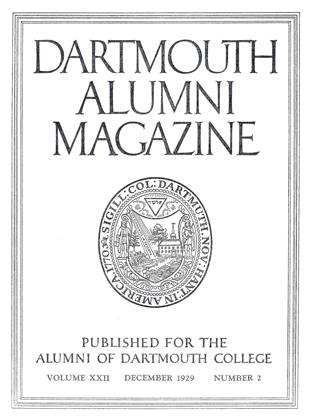For a number of years 25,000 or more immigrants in Massachusetts have annually attended schools of the types described above. These men and women are taught by experienced teachers, trained in the special pedagogy of this work. One must visit a class if he is to genuinely visualize the scene it presents. The atmosphere is one of joy and hard work. These men and women come to school because they want to. They are earnest and serious, and they offer such loyalty to their teacher that one cannot witness their efforts and their progress without new inspiration and determination to see this task through.
Of all the elements in Americanization work the student—the immigrant himself—is by all means the most absorbing. Every immigrant has certain problems of adjustment to a new environment in America. He brings heritages that are different, and if past twenty years of age, he has developed national characteristics as a result of his own life and his country's history. Helping the foreign-born means understanding the mind of the newcomer, interpreting his reactions on the basis of his previous training and experience, and preparing him to meet the demands of strange situations.
The skillful teacher realizes what kind of citizenship material is in this immigrant. Knowing his strength of loyalty to native land because of its history, and realizing what his previous personal experience with government has been, she is guided in planning the type of instruction he most needs in his desire to become a worthy part of America. The rest of us are too apt to forget or perhaps never were aware of the strength of certain native loyalties in these people. Now a few of their legacies of patriotism are offshoots of long oppression by conquerors creating grave fears and suspicions of anything little known or understood.
Every immigrant is partly the product of a former working environment. The teacher is acquainted with the conditions under which he has labored. She knows whether he has been a farmer or a factory worker. She knows that generally his wages have been small, his hours long. She discovers the relation of his former to his present occupation. She is aware of the fact that he has splendid attributes of thrift, physical energy, and industry, which are a part of his inheritance.
One realizes how valuable these qualities are when he considers the high percentage of manual labor that is contributed by the adult alien. Certainly, the usefulness of this newcomer is enhanced by the understanding teacher or the interested friend who takes the time to interpret to him the part that he does play and must play in our economic system.
The immigrant's former living conditions are seldom the same as his present status with reference to home and community surroundings, health laws, public welfare, and the like. His social life in the old country has usually been of the simplest kind in marked contrast to the environment of his adopted home which too often demands a highly developed and somewhat artificial type of entertainment. The hectic American "good time" does violence to the much gentler pleasures of the sidewalk cafe, the band concert, the peasant wedding, and the religious holiday. An appreciation of these facts must be a part of the teacher's equipment.
Many an adult immigrant pupil is attending school for the first time, or if school is not an entirely new experience, he may never before have been a part of a national system which expects everyone to obtain a definite minimum of education. Too frequently one hears the statement that evening schools have been provided and that the immigrants do not care to attend. Diffidence, hesitation, even seeming indifference are the result of a past involving a real lack of widespread educational opportunity. The person who knows the story of a nation whose citizens were forbidden to study their native tongue and were forced to learn the language of their conquerors will understand hesitancy in accepting our invitation to adopt still another language.
As a last thought, let us remember that the immigrant often comes from a land of culture and glorious history. In his veins may be blood of a celebrated artist or patriot. Certainly in his heart is something which has come to him from ancestors who for generations have lived amid surrounding greatness in art and national achievement. Such an environment that includes so much of beauty in art and in nature could not but influence him. One who understands and appreciates the background of the foreign-born will seek to uncover this
inner love of the beautiful so often hidden from American eyes.
President Hoover in his inaugural address told us that we are building a new race. Certainly our most recent immigrants, even as their predecessors, are a powerful factor in this continuing process of the evolution of "the American." May we have more and more adult alien education that our democracy may be better served.
A HOME CLASS NEW BEDFORD
A FACTORY CLASS—NEW BEDFORD
 View Full Issue
View Full Issue
More From This Issue
-
 Class Notes
Class NotesCLASS OF 1923
December 1929 By Truman T. Metzel -
 Article
ArticleAlumni Associations
December 1929 -
 Article
ArticleAlumni Council Meets in New York
December 1929 -
 Article
ArticleCarnegie Report
December 1929 -
 Article
ArticleThe Dartmouth Indians
December 1929 By Eric P. Kelly -
 Sports
SportsThe Yale Epic
December 1929 By Phil Sherman










